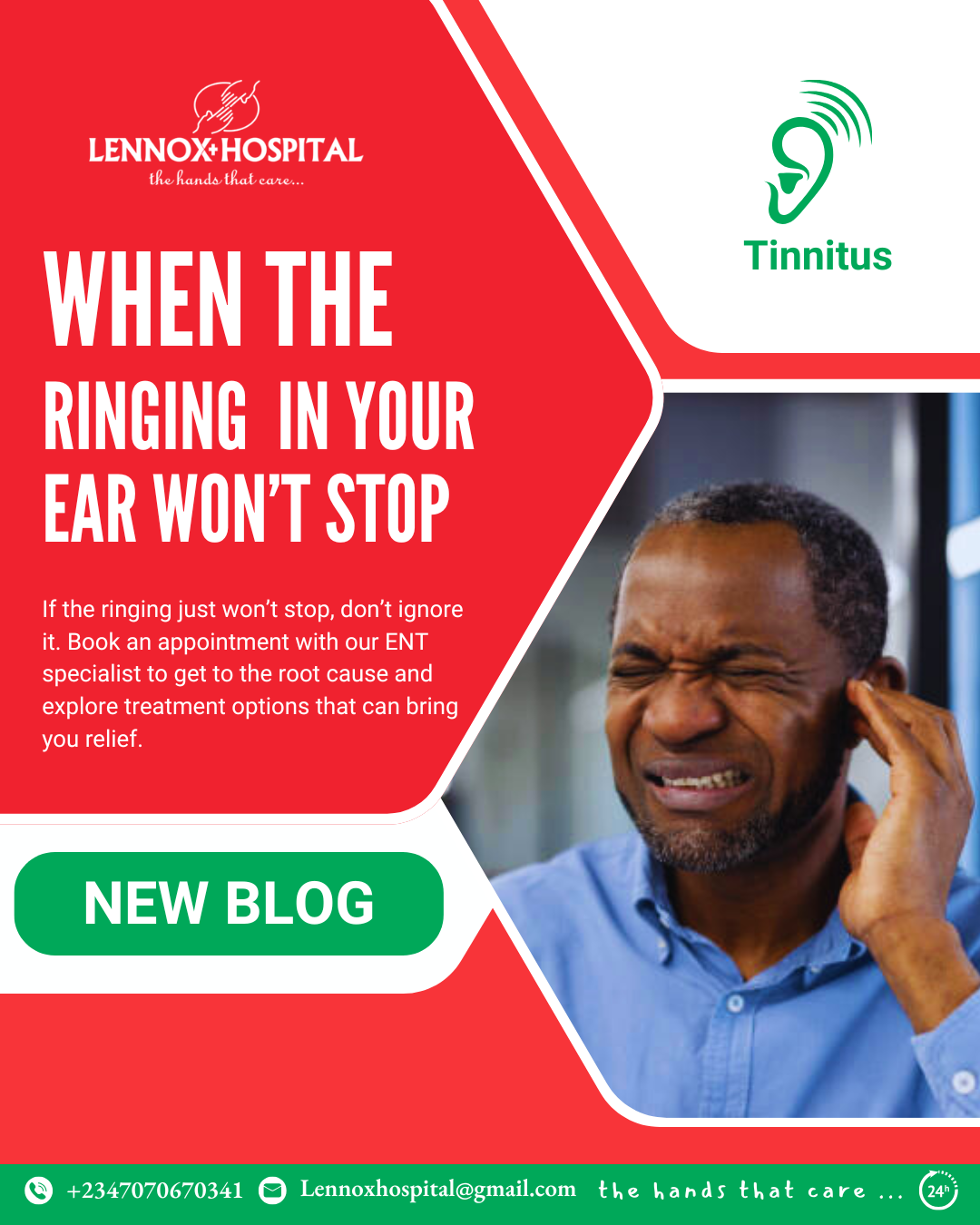Understanding Tinnitus: Causes, Symptoms, and Treatment Options
Have you ever experienced a persistent ringing, buzzing, or humming sound in your ears that no one else seems to hear? If so, you might be dealing with tinnitus, a common yet often misunderstood ear condition that affects millions of people globally.
Tinnitus is not a disease itself but a symptom of an underlying condition. It can range from a minor nuisance to a severe disturbance that interferes with daily life. The sound may be intermittent or constant, soft or loud, and can occur in one or both ears.
What Causes Tinnitus?
Tinnitus can be triggered by a variety of factors. The most common causes include:
Exposure to loud noises: Concerts, headphones at high volume, or industrial noise can damage the hair cells in the inner ear, leading to tinnitus.
Age-related hearing loss (Presbycusis): As we age, the inner ear’s function naturally declines, and tinnitus may develop.
Ear infections or blockages: Wax buildup or infections can alter the pressure in the ear and cause ringing.
Medications: Certain drugs, such as aspirin, antibiotics, or cancer medications, are known to cause or worsen tinnitus.
Underlying health conditions: Issues like high blood pressure, temporomandibular joint (TMJ) disorders, Meniere’s disease, or head injuries can contribute.
Recognizing the Symptoms
Tinnitus is often described as:
Ringing
Buzzing
Hissing
Roaring
Clicking
In some cases, the sound follows the rhythm of the heartbeat — a type called pulsatile tinnitus, which may indicate a vascular issue and requires prompt medical evaluation.
Can Tinnitus Be Cured?
While there’s no universal cure for tinnitus, especially if it’s due to age or permanent ear damage, there are effective ways to manage it. These include:
Hearing aids: For those with hearing loss, amplifying external sounds can help mask tinnitus.
Sound therapy: Using background music, white noise, or specialized tinnitus maskers to reduce the perception of ringing.
Cognitive Behavioral Therapy (CBT): Helps patients manage the emotional effects of tinnitus, such as stress, anxiety, and depression.
Lifestyle changes: Reducing caffeine, alcohol, and nicotine can help. Protecting your ears from loud noise is also essential.
Medications: While no drug can cure tinnitus, some may help reduce its severity or the anxiety associated with it.
When Should You See an ENT Specialist?
If tinnitus comes on suddenly, affects one ear, is accompanied by hearing loss or dizziness, or interferes with your daily life, it’s crucial to book an appointment with an ENT (Ear, Nose, and Throat) specialist. They can perform a thorough examination, possibly including a hearing test, imaging, or referral to an audiologist to determine the cause and best management approach.
Tinnitus doesn’t have to control your life. With the right support and treatment plan, many patients find relief and regain control over their hearing health.
Book an appointment with our ENT, reach out to us across any or our social platforms for an appointment.





